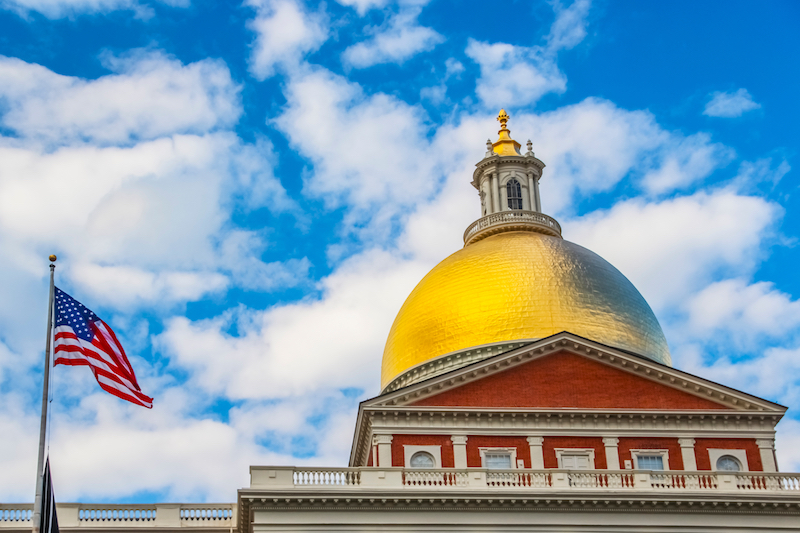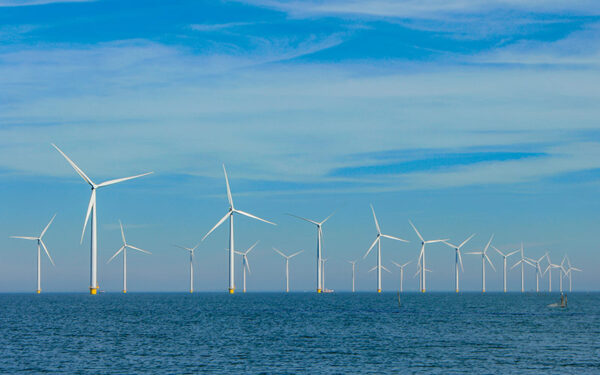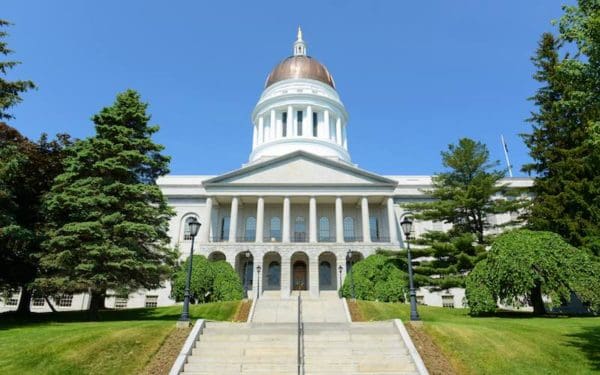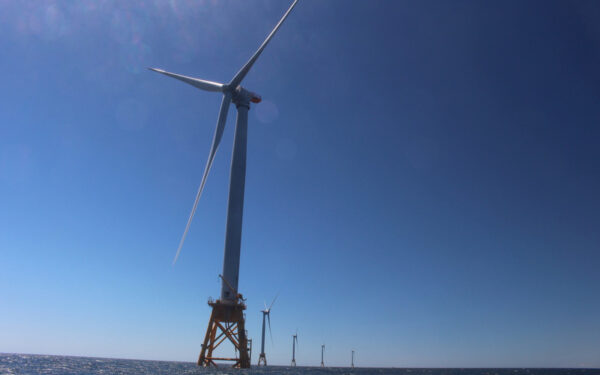
With the Massachusetts Legislative Session over, we're taking stock of what elected officials achieved - and what work remains to be done. Photo: Shutterstock
Last week on July 31, at 1:12 a.m., the gavel fell in Massachusetts, closing the door on the Legislative Session amidst a frenzy of last-minute negotiations and deal-making. With the clock ticking, the last few weeks of the two-year session are when our elected officials make some of the most significant legislative decisions. Now we must take stock of those decisions: What did we achieve? What was left on the table? And was this really the best that Massachusetts could do?
Here’s the recap of the good, the bad, and the “meh” from the last two years of work by our elected officials.
Environmental Bond Bill
H.4835: An Act promoting climate change adaptation, environmental and natural resource protection, and investment in recreational assets and opportunity
Why It Matters: We need to give our communities and residents the resources to take proactive steps to deal with rising seas, more intense storms, and more frequent flooding.
Where It Landed: Several CLF priorities passed as part of this bill, including:
- A requirement for a statewide climate adaptation plan that will help guide state agencies in addressing climate vulnerabilities and is required to be updated every five years.
- Formal establishment of the Municipal Vulnerability Preparedness program that provides cities and towns with resources to develop and pursue climate vulnerability assessments and adaptation plans.
- A coastal buyback program so the state can purchase coastal properties and convert them back to a natural landscape, which in turn helps protect shorelines and communities against storm surge and sea level rise.
Unfortunately, several important CLF priorities did not make it, including:
- Environmental justice language was added as an amendment but did not pass in the final bill (see below)
- A ban on single-use plastic bags to cut down on harm to our environment, health, and wildlife (more details below)
Energy Bill
H.4857: An Act to Advance Clean Energy
Why It Matters: Developing and sustaining clean energy is necessary to protect Massachusetts families from the devastating impacts of climate change. We must invest immediately and thoughtfully in renewable, clean energy so we can minimize electricity costs to families and businesses and maximize local job creation, both today and into the future.
Where It Landed: Legislators tried to tout this bill as one pushing Massachusetts forward, but this bill is a perfect example of playing it safe – moving the needle just far enough to be able to claim that it moved forward at all. Nothing ambitious, nothing transformative, and nothing close to what Massachusetts needs to be a leader in clean energy and climate readiness. The final version contains the following CLF priority items:
- Boosts the amount of renewable energy utilities must purchase annually (a policy called the Renewable Portfolio Standard) from the current 1 percent per year increase to a 2 percent per year increase from 2020 through 2030, when it drops back to 1 percent.
- Authorizes 1,000 megawatt hours of energy storage by 2026, which will lessen our dependence on dirty power plants.
- Allows up to 1,600 more megawatts of offshore wind power to grow our available clean energy supply.
- Expands MassSave energy efficiency programs, which helps families and businesses save money on heat and electricity bills while cutting carbon pollution.
- Quantifies how much dirty gas leaks from pipelines in Massachusetts so that we’re not paying for gas we’re not using.
Importantly, the bill does NOT contain many critical provisions CLF pushed for:
- A bigger boost to the Renewable Portfolio Standard to 3 percent per year, with no dropping back.
- Boosting solar power in the state by lifting caps on solar net metering and restoring incentives for community shared solar and low-income solar projects.
- Creating a roadmap to reach the carbon pollution goals mandated by our Global Warming Solutions Act.
- Anything to do with transportation, which is the biggest source of carbon pollution in the state.
Environmental Justice
H.2913/S.426 An Act Relative to Environmental Justice and Toxics Reduction in the Commonwealth
Why It Matters: This bill would have transformed existing Environmental Justice policies into law, creating accountability and additional protections for vulnerable communities.
Where It Landed: Just as the Massachusetts Legislature was poised to pass this crucial, long-overdue legislation, the process stymied, and no bill was passed. This is nothing short of shameful. It is past time for meaningful environmental justice legislation in Massachusetts. Next session, this must be a major priority.
Converting State Forest to Toxic Landfill
H.4677: An Act authorizing the town of Westminster to acquire state forest land
Why It Matters: H. 4677 would have given 85 acres of protected forestland from the Leominster State Forest to expand the Westminster/Fitchburg landfill. The bill was quietly ushered through the legislative process, yet it would have meant statewide, precedent-setting impacts that would diminish protections for public lands, scuttle efforts to reduce waste across the state, and pollute nearby environmental justice communities.
Where It Landed: Because of CLF’s actions, along with the hard work of our partners and supporters, this bill did not move forward. Without this coordinated action and messaging, this bill might have passed unnoticed – great work, CLF community!
Protection of Public Access and Benefits on the Waterfront
H.4505 An Act authorizing Commercial Wharf East Condominium Association under Tidelands Public Trust Doctrine and preventing residents from being forced to leave
Why It Matters: This bill used a sympathy-inducing title to hide its end-run of important Chapter 91 protections. It would have allowed a private entity to bypass essential safeguards to public access and benefits on the waterfront, creating a dangerous precedent for other developers.
Where It Landed: CLF helped make sure this bill never came out of committee for a vote. CLF and numerous partner organizations sent letters to members of the House opposing the bill, as well as action alerts to our members and followers. Many residents called their representatives and opposed the bill. This is another example of how much your calls and contacts make a difference.
Great Neighborhoods Bill
H. 4397: An Act Building for the Future of the Commonwealth
Why It Matters: The Great Neighborhoods Bill is the latest legislative effort to address the state’s outdated zoning and permitting policies. This bill would make it easier for young families and seniors to stay in their communities by providing housing choices; promoting healthy, active communities with good access to open space; and providing protections for critical natural resources.
Where it Landed: The bill did not make it to a vote this session. CLF and our partners must do more to help lawmakers see the importance of supporting local working families and their neighborhoods and protecting against insidious discriminatory impacts of outdated policies
Plastic Bag Ban
A bill that was reframed as an amendment added to the Environmental Bond Bill
Why It Matters: This bill would prohibit all stores from distributing single-use plastic grocery bags, which hurt wildlife, pollute our environment, and contaminate landfills.
Where it Landed: Unfortunately, this bill did not pass this legislative session. However, you can still call your senator and representative (find contact information here) and tell them to prioritize action to reduce plastic bag pollution in the next legislative session.
Just looking at the win/loss scoresheet, it might seem like, overall, CLF did pretty well this session, with many priority bills passing, or bad bills getting stopped in their tracks. But diving a bit deeper, the better description of this session is “anticlimactic.” Some wins, yes, but many falling far short of what Massachusetts can and should be doing to respond to immediate needs for clean energy, meaningful resilience to climate change, protection from pollution, and advancing environmental justice.
So let’s gear up for the next round, Massachusetts. And this time, let’s do something climactic, something truly transformative and worthy of this great state.




